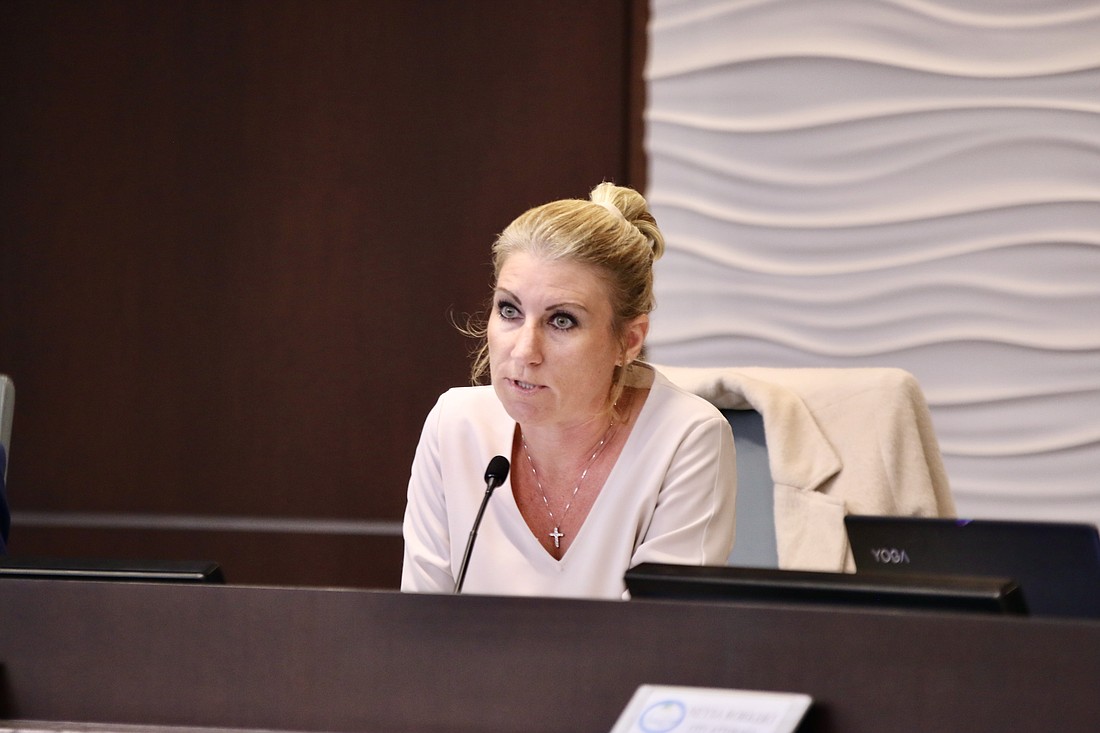- December 15, 2025

Should the City Council add an invocation at the beginning of meetings? Or, as some members suggested, is the current moment of silence enough? A proposed invocation policy sparked debate March 14 about what adding an invocation could mean for the council.
The council had asked City Attorney Neysa Borkert to create a draft invocation policy at the end of January, and Borkert presented that draft policy to the council and at the March 14 meeting,
Borkert said she drafted the city’s policy based on best practices from previous legal cases. Signup for speakers would be on a first-come-first-served basis, she said, and the council would have to be cautious not to favor one speaker over another.
“If you open the door to allowing for a prayer or an invocation to be given,” Borkert said, “that door needs to be open to everyone, to all religions.”
If you open the door to allowing for a prayer or an invocation to be given, that door needs to be open to everyone, to all religions. —Neysa Borkert, city attorney
The draft policy states that invocation speakers could not be paid and could not proselytize during the invocation.
Borkert also made it clear that, should the city enact the invocation policy, it must be open to all religions and cannot be exclusive to one religion or exclude any religion to abide, by federal law. That is due to the Establishment Clause of the First Amendment, which prohibits government from making any law establishing an official religion or favoring one religion over another, Borkert said.
City Council will vote on the invocation policy at a future meeting.
Mayor David Alfin said he will insist on a unanimous consensus, and nothing less. If the policy is approved, the council would also decide at that meeting when it would implement the invocation.
Several members of the public spoke during public comment, encouraging the addition of the invocation — but not to “fake gods.”
Palm Coast is home to multiple Christian denominations, an Islamic center and two synagogues.
City Clerk Virginia Smith, whose team will be responsible for organizing the various invocation speakers, will work with Borkert ahead of the March 28 meeting to determine what would qualify someone as a speaker.
Alfin proposed drafting a neutral invocation — not a prayer — for religious leaders to use as an example, or, if they wished, to read for the invocation.
He said a neutral invocation might be a good way to show the city wasn’t favoring one religion over another.
Vice Mayor Ed Danko did not agree with a neutral invocation that speakers would have to read, but consented to using it as an example or option.
“This is their job,” Danko said. “This is their beliefs, this is what they do. They need to express it in their own words.”
Council member Theresa Carli Pontieri said she is a devout Catholic but recognizes that the City Council would not be able to limit invocations and prayers to ones it agreed with.
Her concern, she said, is that she doesn’t want members of the community to be offended by a prayer or invocation.
She said she recently heard an invocation that offended her because it ended with the phrase “a-woman” rather than “amen.”
I'm sorry, but I don't ever want a prayer in this chamber to end with 'a-woman. ... People don’t want to pray to fake gods. I don’t want to pray to fake gods either. —Theresa Carli Pontieri, City Council member
“I’m sorry, but I don’t ever want a prayer in this chamber to end with ‘a-woman,’” Pontieri said. “... People don’t want to pray to fake gods. I don’t want to pray to fake gods, either.”
Both council members Nick Klufas and Cathy Heighter indicated that the moment of silence already in place serves the purpose of giving them a moment to pray and reflect, though neither was averse to adding an invocation.
“I think that what the mayor has been doing, in my own opinion ... it’s enough that we have that moment of silence for us,” Heighter said.